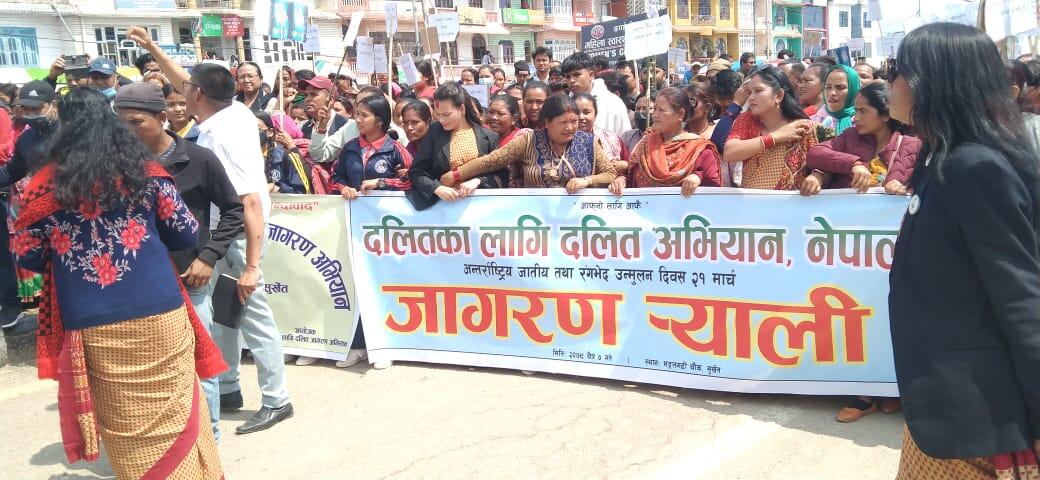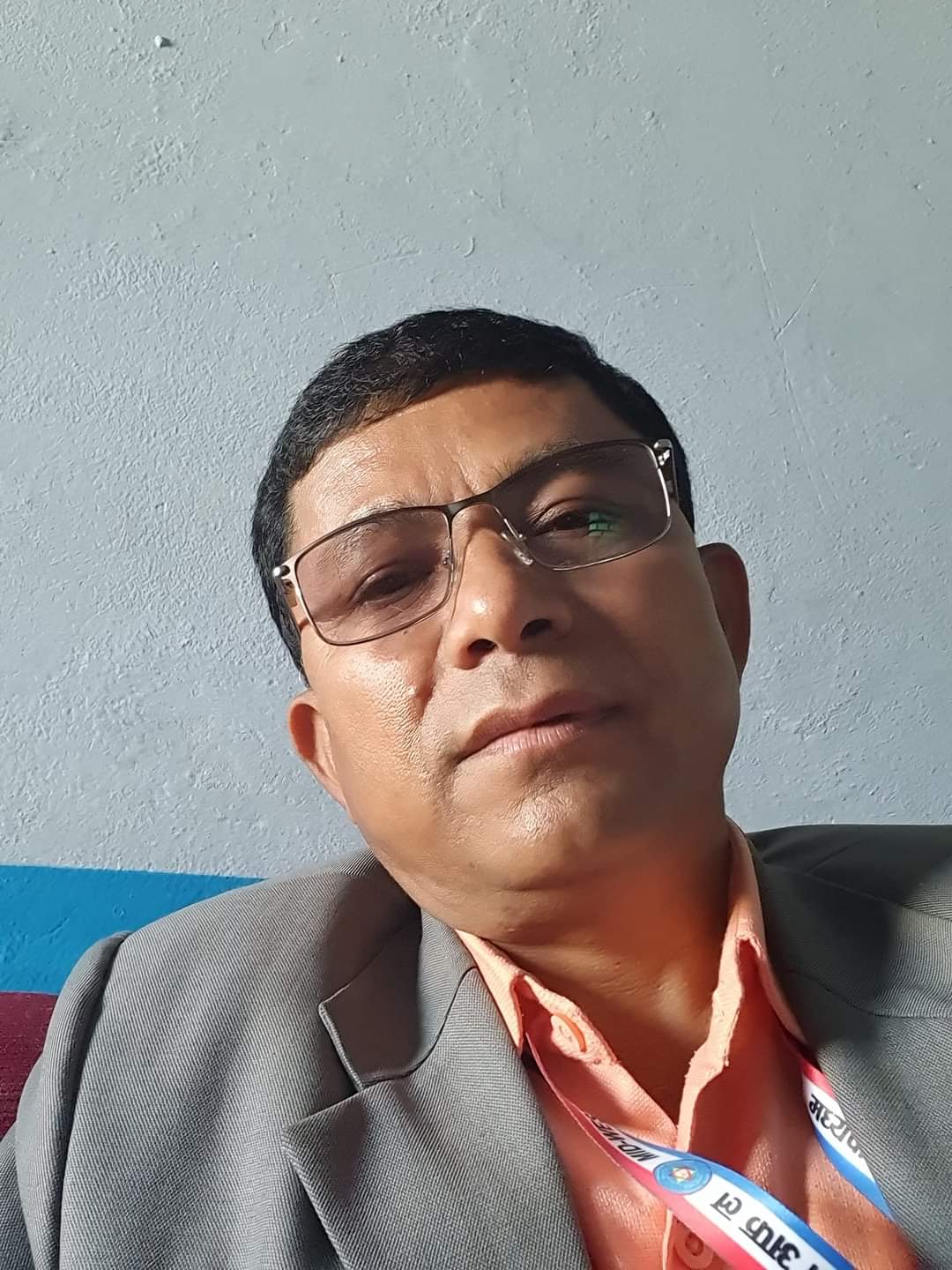Ritualization of celebration of 21 March in Nepal: How caste discrimination is alive

Evolution of the Day
21 March is supposed to be the international day for the elimination of racial discrimination observed annually. On the day, the police in Sharpeville, South Africa, killed 69 people at a peaceful movement against apartheid 'pass laws'. The UN General Assembly adopted a program of activities for action in a bid to combat racism and racial discrimination in 1979. On that occasion, the General Assembly decided a week of solidarity with the people struggling against racism, beginning on 21 March, would be organized annually in all states. Since then, the apartheid system was dismantled in South Africa. The racist practices and laws were abolished in many countries. The convention is at present nearing the universal declaration. However, many individuals, communities and societies in all regions still suffer from the stigma and injustice that racism brings. The United Nations General Assembly reiterates that all human beings are born free and equal in dignity and rights and have the potential to contribute constructively to the development and well-being of their societies. In its most recent resolution, the General Assembly also emphasized that any doctrine of racial superiority is scientifically false, morally condemnable, socially unjust and dangerous and must be rejected, together with theories that attempt to determine the existence of separate human races. The United Nations has been concerned with this issue since its foundation and the prohibition of racial discrimination is enshrined in all core international human rights instruments. It places obligations on States and tasks them with eradicating discrimination in the public and private spheres. The principle of equality also requires States to adopt special measures to eliminate conditions that cause or help to perpetuate racial discrimination. In September 2021, the United Nations General Assembly brought together world leaders for a one-day meeting in New York to mark the twentieth anniversary of the adoption of the Durban Declaration and Program of Action under the theme of “Reparations, racial justice and equality for People of African Descent.” In 2001, the World Conference against Racism produced the most authoritative and comprehensive program for combating racism, racial discrimination, xenophobia and related intolerance: the Durban Declaration and Program of Action (DDPA). In April 2009, the Durban Review Conference examined global progress made in overcoming racism and concluded that much remained to be achieved. Undoubtedly, the greatest accomplishment of the conference was the renewed international commitment to the anti-racism agenda. In September 2011, the United Nations General Assembly held a one-day high-level meeting in New York to commemorate the 10th anniversary of the adoption of the Durban Declaration and Program of Action. There, world leaders adopted by consensus a political declaration proclaiming their "strong determination to make the fight against racism, racial discrimination, xenophobia and related intolerance, and the protection of the victims thereof, a high priority for their countries." Coming as it did during the 2011 International Year for People of African Descent, the 10th anniversary was a chance to strengthen political commitment to fighting racism and racial discrimination. On 23 December 2013, the General Assembly proclaimed the International Decade for People of African Descent commencing on 1 January 2015 and ending on 31 December 2024, with the theme “People of African descent: recognition, justice and development.”The article attempts to present insights based on a case of Dalits from Karnali Province.
Dalits and Caste Discrimination in Karnali
Dalits are subject to untouchability and caste-based atrocities in Nepal despite the social and political changes. A reigning ideology of the caste system puts Dalits on the lowest rung under a social hierarchy. In a new political setting of the federal system of governance, the inclusive constitutional and legal provisions have brought Dalits to the diverse organs of the states. Power relations are yet still unchanged in society. Thus, Dalits are politically underpowered, socially unequal, culturally disintegrated and economically deprived of resources. Around 29 percent of the Karnali Province population comprises Dalit communities, according to the preliminary report of the National Census 2021. Dalits are sidelined from the socio-cultural processes. Social organizations and networks are heavily represented by non-Dalits. Only the token Dalits are included in the structures of these organizations. Dalits, of course, are deprived of leadership positions. The same situation is also seen in political parties. The scattered Dalits in political roles are manipulated by the 'divide and rule' formula of the ruling elites in the parties. The organization by Dalits for group rights is still the issue to translate the legal and constitutional provisions. No doubt Dalits have a symbolic representation in all political parties without having decision-making powers and roles. The political leadership dominated by so-called high caste people is reluctant to give tickets to Dalits under the first-past-the-post system either in the provincial or federal representation. But the representation of people from the said communities is paltry in parliament and provincial assemblies. Ransingh Pariyar is the only people’s representative elected from the Dalit communities during the November 20 polls. This kind of adverse effect of exclusion is also at the local level. The practices of untouchability and all forms of caste discrimination are punishable according to the constitution and act. No compromises are envisaged by the act. An irony is that the political leaders and law enforcement agencies are not sincere in the prosecution of crimes of untouchability and caste discrimination. The police refuse to register the FIR against untouchability and caste discrimination. This is because of the inundation of pressures by elected and power elites. Karnali is an untouchability-ridden region where Dalits have been killed due to a reason to have touched a kitchen and married a non-Dalit girl. A tendency is still working to make victims of untouchability and caste discrimination compromise. The law enforcement agencies and the concerned stakeholders focus on the compromises that are condemnable and out of the fashion for social justice. The basis of inequality in the political representative and development process is the mindset of the political leader and more focus on the number of votes rather than the true implementation of the constitutional provision for inclusion. Dahl (1996) is of the onion that political inequality means structural differences in the distribution of political resources. Political resources are anything that can be used to influence political decisions, such as social and psychological factors, an authority position, a network connection or action, or political participation.
Consolidated Advocacy: Need of the Hour
An endeavor towards policy advocacy at different levels is in need of an hour. It is possible through the unity of diverse Dalit sister organizations associating with diverse political parties on an issue of caste discrimination and untouchability keeping differences aside. The campaigns and advocacy movements within the legal policy framework hold the duty-bearers accountable for the enforcement of laws and policies of the state. Besides, it initiates a collaboration and progressive realization against the ruins of the caste system increasing a wider constituency with political parties and social stakeholders. Caste discrimination is understood as 'discrimination based on work and descent', meaning that because of the occupation or family a person is born into, they are socially excluded, economically deprived and subject to violence and abuse. This socially constructed system, unlike class discrimination where there is some potentiality for mobility, is fixed by birth and perpetuated through many generations.
Pitkin (1967) argues that power relations exclude a community from such political opportunities and resources. Political representation has been developed in the context of group representation. It is manifested in the composition of political institutions, as visible in the presence of numbers. It demands embracing groups of all backgrounds and characteristics so that political settings can address all citizens’ voices and reflect society as a whole.
Power comes from the countryside and Dalits need to be organized to reverse undesirable conditions of humiliation and discrimination. A world without untouchability is possible.



Leave Comment